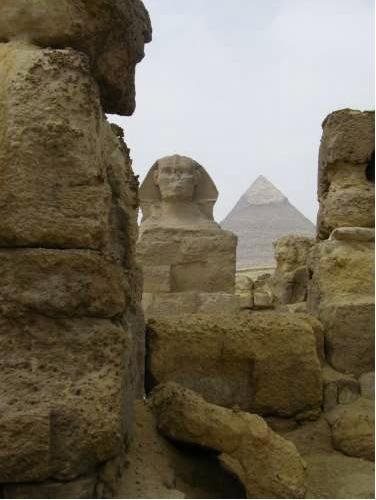WASHINGTON, Aug. 16 (UPI) -- Sediments in the Nile Delta record ancient droughts and fires, including a drought 4,200 years ago linked with the end of Egypt's Old Kingdom, scientists say.
Ancient pollen and charcoal preserved deep in the sediment reveal the impact of droughts and fires during what is known as the pyramid-building time.















